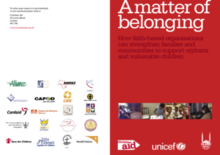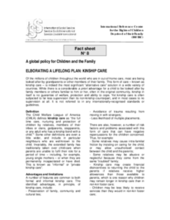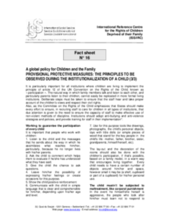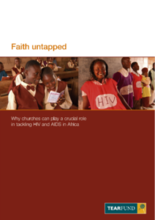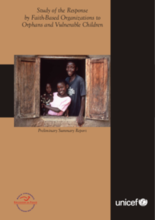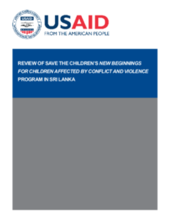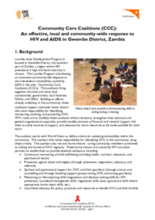Displaying 251 - 260 of 312
A guide for faith-based organizations working in developing countries on issues related to orphans and vulnerable children. Contains examples of successful community-based and family support care programs throughout the world that are run by faith-based groups. Discourages the use of institutional care and orphanages.
A brief fact sheet that provides an overview of kinship care.
A brief 2-page document that highlights the importance of child participation, post care planning, guarding against abuse, and connecting residential institutions with the surrounding community.
This article examines the foster care of Aboriginal children in Australia. It discusses the Aboriginal Child Placement Principle (ACPP), the role of indigenous kinship care and the self-determination of Aboriginal people.
Contains a set of forward-leaning recommendations for churches and the donor community. Also contains an analysis of the role of faith-based groups in the response, specific case studies, the potential to do more on the ground, and challenges faced by churches.
Detailed examination of debate over institutional and alternative care methods for children without parental care. Includes comprehensive framework for collective action.
A study that looks at the response of faith-based organizations in Kenya, Malawi, Mozambique, Namibia, Swaziland, and Uganda. The report contains statistical information, and details positive care practices to build on, and negative examples to avoid.
Examines the transition from residential care to family-based, community care models in five European / Eurasian countries.
An evaluation of a programme in Sri Lanka that aimed to resettle and reintegrate children affected by armed conflict, prevent and respond to child abuse, and develop community based alternatives to institutional care.
Short document outlining the constitution, role, and work of community care coalitions in Gwembe District, Zambia. Includes lessons learned and recommendations.

